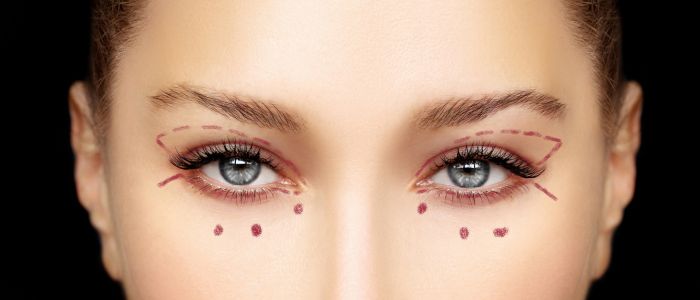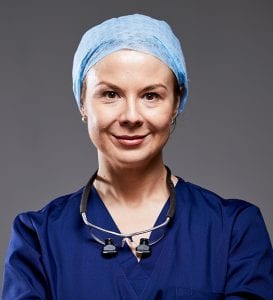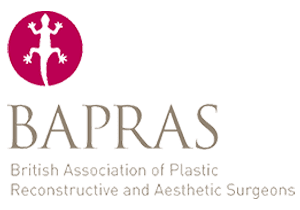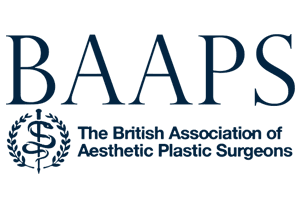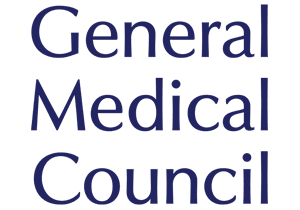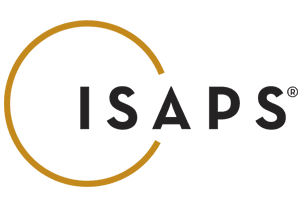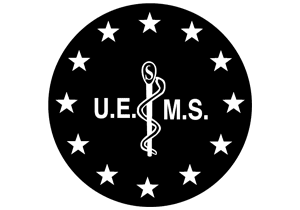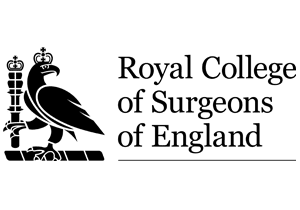
Table of Contents
- Popular Eyelid Surgery Questions Answered by Consultant Plastic Surgeon Anca Breahna
- Before the Eyelid Surgery FAQs
- Who is a good candidate for eyelid surgery?
- How should I prepare for eyelid surgery?
- Can eyelid surgery be combined with other procedures?
- Are there any risks associated with eyelid surgery?
- How much does eyelid surgery cost?
- Does insurance cover eyelid surgery?
- What should I ask my surgeon during the consultation?
- How do I choose the right surgeon for eyelid surgery?
- What type of anaesthesia is used for eyelid surgery?
- What are the alternatives to eyelid surgery?
- Can men undergo eyelid surgery?
- Is eyelid surgery suitable for older adults?
- What kind of follow-up care is required after eyelid surgery?
- Can I drive myself home after eyelid surgery?
- During the Eyelid Surgery FAQs
- What happens during the surgery?
- Recovery after Eyelid Surgery FAQs
- What can I expect during recovery?
- How long do the results of eyelid surgery last?
- Will I have visible scars after eyelid surgery?
- How do I manage pain and discomfort after eyelid surgery?
- How do I reduce swelling and bruising after eyelid surgery?
- When can I wear makeup after eyelid surgery?
- Can I wear contact lenses after eyelid surgery?
- How soon can I exercise after eyelid surgery?
- Will eyelid surgery affect my vision?
- How can I ensure the best results from my eyelid surgery?
- What should I do if I experience complications after eyelid surgery?
- How long should I take off work after eyelid surgery?
- How can I manage dry eyes after eyelid surgery?
- How long should I avoid sun exposure after eyelid surgery?
- How does smoking affect eyelid surgery recovery?
- Can I fly after eyelid surgery?
- Can I use skincare products after eyelid surgery?
- Further Reading about Eyelid Surgery at Cheshire Cosmetic Surgery
- Medical References Eyelid Surgery
Popular Eyelid Surgery Questions Answered by Consultant Plastic Surgeon Anca Breahna
Eyelid surgery is a procedure aimed at improving the appearance of the eyelids. This surgery involves removing or repositioning excess skin, fat, or muscle from the upper or lower eyelids. The goal is to correct sagging skin, puffiness, and bags under the eyes. This can result in a more youthful and refreshed appearance. In this blog, Consultant Plastic Surgeon Anca Breahna will address popular Eyelid Surgery FAQs.
Before the Eyelid Surgery FAQs
Who is a good candidate for eyelid surgery?
- Good candidates for eyelid surgery are individuals with healthy facial tissue and muscles. They should have realistic expectations about the outcomes. Generally, candidates seek this surgery to address concerns like sagging upper eyelids, excess skin on the lower eyelids, or bags under the eyes. Ideal candidates do not have serious eye conditions or significant medical issues that could impair healing. Non-smokers are preferred, as smoking can delay the healing process.
How should I prepare for eyelid surgery?
- Preparing for eyelid surgery involves several steps. First, have a detailed consultation with Anca to discuss your goals, medical history, and any medications you are taking. You may need to undergo a physical examination and vision test. Avoid medications that can increase bleeding risk, such as aspirin and certain anti-inflammatory drugs. Arrange for someone to drive you home after the procedure and stay with you for at least the first night.
Can eyelid surgery be combined with other procedures?
- Yes, eyelid surgery can be combined with other facial procedures. Commonly combined procedures include facelifts, brow lifts, and skin resurfacing treatments. Combining these procedures can be more convenient and cost-effective, allowing for a single recovery period. Anca will assess your facial anatomy and aesthetic goals to determine if combining procedures is appropriate for you. This approach can enhance overall results, creating a balanced and harmonious appearance.
Are there any risks associated with eyelid surgery?
- As with any surgical procedure, there are risks associated with eyelid surgery. Common risks include infection, bleeding, and adverse reactions to anaesthesia. Specific risks related to eyelid surgery include dry eyes, difficulty closing your eyes, noticeable scarring, and changes in skin sensation. In rare cases, there can be damage to eye muscles or vision changes. It’s important to discuss these potential risks with Anca during the consultation.
How much does eyelid surgery cost?
- The cost of eyelid surgery can vary widely based on factors such as the surgeon’s experience, the complexity of the procedure, and the geographic location of the clinic. On average, eyelid surgery can range from £2,000 to £5,000. This estimate includes surgeon fees, anaesthesia, operating room costs, and any necessary medical tests. However, additional costs may arise from post-surgery medications, follow-up visits, and potential revisions. It is important to obtain a detailed cost estimate during your consultation, ensuring you understand all potential expenses involved in the procedure.
Does insurance cover eyelid surgery?
- Insurance usually does not cover eyelid surgery when it is performed for cosmetic reasons. However, if the procedure is deemed medically necessary, such as correcting vision problems caused by drooping eyelids, insurance may cover part or all of the costs. To determine coverage, you will need to provide documentation from your surgeon and undergo an evaluation by your insurance provider. It is important to check with both your insurance company and your surgeon’s office to understand the specific requirements and coverage options available to you.
What should I ask my surgeon during the consultation?
- During your consultation, it is important to ask several key questions to ensure you are well-informed about the procedure. Ask about the surgeon’s experience and qualifications, specifically in performing eyelid surgeries. Inquire about the specifics of the procedure, including the techniques used, expected outcomes, and recovery process. Discuss potential risks and complications, as well as how they are managed. It is also helpful to view before-and-after photos of previous patients and get a detailed cost estimate.
How do I choose the right surgeon for eyelid surgery?
- Choosing the right surgeon is critical for achieving good results. Look for a surgeon who is certified in plastic surgery, indicating they have undergone rigorous training and meet high standards. Experience is key, so find a surgeon who has extensive experience performing eyelid surgeries. Reading reviews and testimonials from previous patients can provide insight into their satisfaction with the surgeon’s work. Additionally, ensure the surgeon communicates well, answers your questions thoroughly, and makes you feel comfortable. A good rapport with your surgeon is essential for a positive surgical experience.
What type of anaesthesia is used for eyelid surgery?
- Eyelid surgery can be performed under local anaesthesia with sedation or general anaesthesia. Local anaesthesia with sedation involves numbing the eyelid area and providing medication to help you relax. This option allows you to be awake but comfortable during the procedure. General anaesthesia, on the other hand, puts you to sleep for the duration of the surgery. The choice of anaesthesia depends on the extent of the surgery, your medical history, and your personal preference. Anca will discuss the best option for you during the consultation, ensuring a safe and comfortable experience.
What are the alternatives to eyelid surgery?
- Non-surgical alternatives to eyelid surgery include treatments such as injectable fillers, laser resurfacing, and radiofrequency skin tightening. These options can address issues like mild sagging, wrinkles, and under-eye bags with less downtime and risk compared to surgery. Injectable fillers can add volume and smooth wrinkles, while laser treatments can improve skin texture and pigmentation. Radiofrequency and ultrasound devices can tighten the skin by stimulating collagen production. However, these alternatives may not provide as dramatic or long-lasting results as eyelid surgery.
Can men undergo eyelid surgery?
- Yes, men can undergo eyelid surgery. The procedure is becoming increasingly popular among men seeking to address issues such as sagging upper eyelids, puffiness, and bags under the eyes. Eyelid surgery can help men achieve a more alert and refreshed appearance, enhancing their overall facial aesthetics. The surgical techniques and recovery process are similar for both men and women. During the consultation, Anca will discuss the specific goals and expectations to tailor the procedure to the individual’s needs, ensuring natural and satisfactory results.
Is eyelid surgery suitable for older adults?
- Eyelid surgery can be suitable for older adults, provided they are in good overall health. Age alone is not a contraindication for the procedure. Anca will evaluate factors such as skin elasticity, medical history, and the presence of any eye conditions to determine suitability. Older adults can benefit from eyelid surgery to address sagging skin, puffiness, and other age-related changes around the eyes.
What kind of follow-up care is required after eyelid surgery?
- Follow-up care after eyelid surgery involves several visits to your surgeon to monitor healing and remove any stitches. During these appointments, Anca will check for any signs of complications and ensure that the healing process is progressing well. You will receive specific instructions on how to care for your eyes, including the use of any prescribed ointments or medications. It is essential to follow all post-operative care instructions and attend all scheduled follow-up appointments to achieve the best results and address any concerns promptly.
Can I drive myself home after eyelid surgery?
- No, you will not be able to drive yourself home after eyelid surgery due to the effects of anaesthesia and the immediate recovery period. Anaesthesia can impair your ability to drive safely. It is important to arrange for someone to drive you home after the procedure. Additionally, having someone stay with you for at least the first night after surgery is advisable, as you may need assistance with basic tasks and monitoring for any immediate post-operative issues. Planning ahead ensures a smoother and safer recovery process.
During the Eyelid Surgery FAQs
What happens during the surgery?
- The procedure typically lasts between one to three hours, depending on the extent of the surgery. You will be under local anaesthesia with sedation or general anaesthesia. Incisions are made along the natural lines of your eyelids, such as the creases of the upper lids or just below the lashes on the lower lids. Through these incisions, Anca removes or repositions excess skin, fat, and muscle. The incisions are then closed with fine sutures. The precise techniques and steps may vary based on individual needs.
Recovery after Eyelid Surgery FAQs
What can I expect during recovery?
- Recovery from eyelid surgery involves several stages. Initially, you may experience swelling, bruising, and mild discomfort, which can be managed with prescribed medications and cold compresses. Keeping your head elevated can help reduce swelling. Most people can return to normal activities within 10 to 14 days, but complete recovery may take several weeks.
How long do the results of eyelid surgery last?
- The results of eyelid surgery are usually long-lasting. However, the natural ageing process will continue, which may eventually cause new sagging or drooping of the eyelids. Factors such as genetics, lifestyle, and skin care also play a role in the longevity of the results. While the improvements are not permanent, many patients find that the enhancements last for many years. To prolong the results, it’s important to maintain a healthy lifestyle, protect your skin from excessive sun exposure, and follow any post-surgery care recommendations provided by Anca.
Will I have visible scars after eyelid surgery?
- The incisions made during eyelid surgery are placed in natural creases and folds of the eyelids, such as the upper eyelid crease or just below the lash line on the lower eyelid. This strategic placement helps minimise the visibility of scars. Over time, scars usually fade and become less noticeable. The healing process varies for each individual, but most people find that their scars are well-concealed and not easily visible. Following Anca’s post-operative care instructions can also help ensure that scars heal as inconspicuously as possible.
How do I manage pain and discomfort after eyelid surgery?
- Post-surgery pain and discomfort are generally mild and can be managed with prescribed pain medications and over-the-counter pain relievers like paracetamol. Applying cold compresses to the eyes can help reduce swelling and numb the area, providing additional relief. It’s important to avoid strenuous activities and follow all post-operative care instructions provided by Anca. If pain persists or becomes severe, contact your surgeon immediately, as this could indicate a complication.
How do I reduce swelling and bruising after eyelid surgery?
- To reduce swelling and bruising after eyelid surgery, apply cold compresses to the eye area for the first 48 hours. This can help constrict blood vessels and minimise swelling. Keeping your head elevated, even while sleeping, helps fluid drain away from the surgical area. Avoiding strenuous activities and bending over can also prevent increased blood flow to the eyes. Eating a balanced diet, staying hydrated, and avoiding smoking can further support the healing process and reduce swelling and bruising.
When can I wear makeup after eyelid surgery?
- You should avoid wearing makeup on or around the surgical site until Anca confirms it is safe, usually around two weeks post-surgery. Using makeup too soon can increase the risk of infection and interfere with the healing process. Once the incisions have healed sufficiently, you can gradually reintroduce makeup. It’s best to use new, hypoallergenic products to minimise irritation and ensure cleanliness.
Can I wear contact lenses after eyelid surgery?
- You will need to avoid wearing contact lenses for at least one to two weeks following eyelid surgery. Wearing glasses is recommended during this period to avoid irritation to the healing surgical area. Once Anca confirms it is safe, you can resume wearing contact lenses. It’s important to handle your lenses with clean hands and ensure they are thoroughly cleaned before use.
How soon can I exercise after eyelid surgery?
- Strenuous activities and exercise should be avoided for at least two to three weeks after eyelid surgery to prevent increased blood flow to the surgical area, which can cause swelling or bleeding. Gentle activities like walking can be beneficial as they promote circulation without straining the body. Anca will provide specific guidelines based on your individual recovery progress. Gradually resuming your regular exercise routine is recommended, starting with light activities and slowly increasing intensity. Always listen to your body and stop if you experience discomfort or swelling.
Will eyelid surgery affect my vision?
- Temporary changes in vision, such as blurred vision or sensitivity to light, can occur after eyelid surgery due to swelling and the use of ointments. These effects usually resolve within a few days to weeks as healing progresses. Permanent vision changes are rare but possible, particularly if there are complications.
How can I ensure the best results from my eyelid surgery?
- To ensure the best results from your eyelid surgery, follow all pre- and post-operative instructions provided by your surgeon. This includes taking prescribed medications, using cold compresses, and keeping your head elevated to reduce swelling. Avoid strenuous activities and protect your eyes from sun exposure. Attend all scheduled follow-up appointments to monitor your healing progress. Maintain a healthy lifestyle, including a balanced diet and proper hydration, to support the healing process. Avoid smoking, as it can impair healing.
What should I do if I experience complications after eyelid surgery?
- If you experience complications after eyelid surgery, such as severe pain, excessive swelling, unusual discharge, fever, or difficulty closing your eyes, contact your surgeon immediately. Follow your surgeon’s advice on managing symptoms and attend all follow-up appointments to monitor your recovery. If necessary, your surgeon may prescribe additional treatments or recommend specific interventions to resolve the complications. Do not attempt to self-treat or ignore concerning symptoms.
How long should I take off work after eyelid surgery?
- Most people take about one to two weeks off work to recover from eyelid surgery. This allows time for initial swelling and bruising to subside. If your job involves strenuous activities or exposure to dust and pollutants, you may need additional time off or modifications to your work duties. Returning to work too soon can impede healing and increase the risk of complications.
How can I manage dry eyes after eyelid surgery?
- Dry eyes can occur temporarily after eyelid surgery. To manage this discomfort, use prescribed eye drops or artificial tears as directed by Anca. These products help lubricate the eyes and relieve dryness. Avoid environments that can exacerbate dryness, such as windy or air-conditioned spaces. If dryness persists or worsens, contact Anca’s team for further evaluation and potential adjustments to your treatment plan.
How long should I avoid sun exposure after eyelid surgery?
- After eyelid surgery, it is crucial to protect your eyes from direct sun exposure for several weeks. Sun exposure can worsen swelling and increase the risk of scarring. When outdoors, wear sunglasses and a wide-brimmed hat to shield your eyes. Apply sunscreen with a high SPF around the eye area, avoiding direct application to the incision sites.
How does smoking affect eyelid surgery recovery?
- Smoking can significantly impair the healing process after eyelid surgery. Nicotine constricts blood vessels, reducing blood flow and oxygen delivery to the tissues, which can delay healing and increase the risk of complications such as infection and poor wound healing
Can I fly after eyelid surgery?
- It is generally recommended to avoid flying for at least one to two weeks after eyelid surgery. Air travel can increase the risk of complications due to pressure changes and the potential for swelling. Additionally, the dry air in airplane cabins can exacerbate post-surgery dryness and discomfort in the eyes. If you must fly, take measures to stay hydrated and use prescribed eye drops to maintain eye comfort during the flight.
Can I use skincare products after eyelid surgery?
- You should avoid using skincare products on or around the incision sites until Anca gives you the go-ahead, usually around two weeks post-surgery. Using products too soon can increase the risk of irritation and infection. Once the incisions have healed sufficiently, you can gradually reintroduce your regular skincare routine, focusing on gentle, non-irritating products. It is advisable to use new, hypoallergenic products to minimise the risk of irritation.
Further Reading about Eyelid Surgery at Cheshire Cosmetic Surgery
- Read more about Complete Guide to Eyelid Surgery
- Read more about Eyelid Surgery in Your 30s, 40s, 50s And 60s
- Read more about Recovery after Eyelid Surgery
- Read more about What Can Be Done to Reduce Eyelid Surgery Scars?
- Read more about Solutions for Saggy Eyelids
- Read more about How to Reduce Eyelid Swelling after Blepharoplasty
Medical References Eyelid Surgery
- Eyelid Reduction Surgery – Australian Society of Plastic Surgeon
- Management of Cosmetic Eyelid Surgery Complications – PubMed
- Blepharoplasty (Eyelid Surgery) – Cleveland Clinic
- Eyelid Surgery – American Academy of Ophthalmology
- All about blepharoplasty procedures and results – Medical News Today
